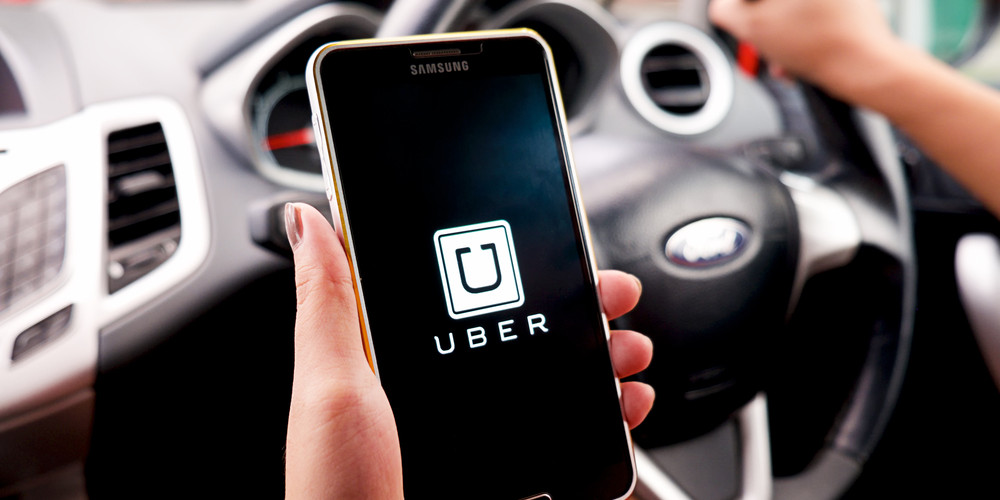Cartels must go, not Uber

I looked out of the window, and there they were. A bunch of noisemakers riding around in a taxi waving poorly written placards and shouting “Uber must go!”
Uber protests hit Nairobi last week. It was inevitable. Uber has disrupted the traditional taxi industry in 400 cities across the globe now, and the traditionalists often protest – sometimes violently. In Nairobi, we had disturbing reports of Uber drivers being attacked and their vehicles damaged.
When the traditional industry’s spokesmen appeared, it was telling that they referred to Uber’s arrogance in “not consulting” them about prices. Hence their anger. Which reminded me of the famous Adam Smith quotation: when people from the same trade meet together, ”the conversation ends in a conspiracy against the public, or in some contrivance to raise prices.”
Indeed it does. Uber’s biggest crime appears to be that it did not “respect” the old pricing structures. Before I go any further, let me state that I have great sympathy for traditional taxi drivers. They have been my long-standing companions. Many are entrepreneurial by nature, and have struggled to buy their own vehicles. They now face possible extinction, and that is a fearful place to be.
But equally, many of our city taxi services have been run as a cartel, for the benefit of a few insiders. You must be approved to enter the circle, and once you do you must stick to the stipulated (high) prices. Hence the hatred for the “foreign” interloper Uber, who does not play by any of the laid-out rules.
Here’s the thing: you can give out 7-day ultimatums until kingdom come, it will make no difference to Uber. The company clocked one billion rides on Christmas eve. It has spread all over the world, and it has an eye-popping market valuation. Why? Because customers, by and large, love it. It’s quick, convenient – and cheap.
As I wrote in a recent newsletter: “The Uber story fascinates me, because it reveals what can happen when a business deploys the new mobile technologies to deliver a product that presses two key customer buttons: convenience and value. Uber has upended the taxi industry around the world at breakneck speed, simply because it is so very easy to use; and because it can unlock hidden value by utilising formerly idle assets. And it’s done all that without owing a single taxicab! Interesting times we live in.”
In Kenya, I observe that Uber has actually brought new riders into the market. A new group of ‘Gen Y’ customers are now using taxis – because of the sheer convenience, and because of the new affordability. That is great for most people – but there will indeed be casualties.
What should people do in the face of an Uber effect? The first thing to note is that you don’t just respond when it’s too late. The time to think about this was way back. I wrote on this page in 2014 that Uber would come, and it would sweep all before it when it did. Why were more people not paying attention? Because they were comfortable, and the comfortable don’t innovate.
Secondly, the most brainless thing to do is to respond with violence. If you reveal yourself to be a thug, don’t expect customers to ever enter a cab with you again. Please note that Uber does not win everywhere. In China, for example, it fights it out with other players who have equally good technology and mobile convenience working for them.
Thirdly, do what you are good at in response. I still use my traditional taxi service today, alongside Uber. That’s because they offer something Uber can’t: they know me well, and so I can trust them; and they can take me to multiple stops and wait patiently. I use them for scheduled trips; Uber for spontaneous ones. My taxi guys did not go rampaging on the streets; they quietly got on with they are good at.
I don’t hold any brief for Uber. It is far from perfect, and may become its own worst enemy. But what it is pioneering is a whole new business model that makes intelligent use of new mobile technologies. We should pay attention, not throw stones.
This phenomenon isn’t just about taxis. Any industry that walls up its suppliers, tries to impose artificial pricing, and subjects its consumers to abject user experiences will experience the Uber effect. And then they’ll be asking for the new competitors to be banished. I hope you are wiser than that.
(Sunday Nation, 14 February 2016)
(Photo credit: Prathan Chorruangsak / Shutterstock.com)

Buy Sunny Bindra's new book
The X in CX
here »
Popular Posts
- The pause that saves usJune 8, 2025
- Where are you rushing to—your funeral?June 29, 2025
- How to spot a real thinkerJune 15, 2025
- Built the app, forgot the flowJune 22, 2025
- The first push is the hardestJune 1, 2025















